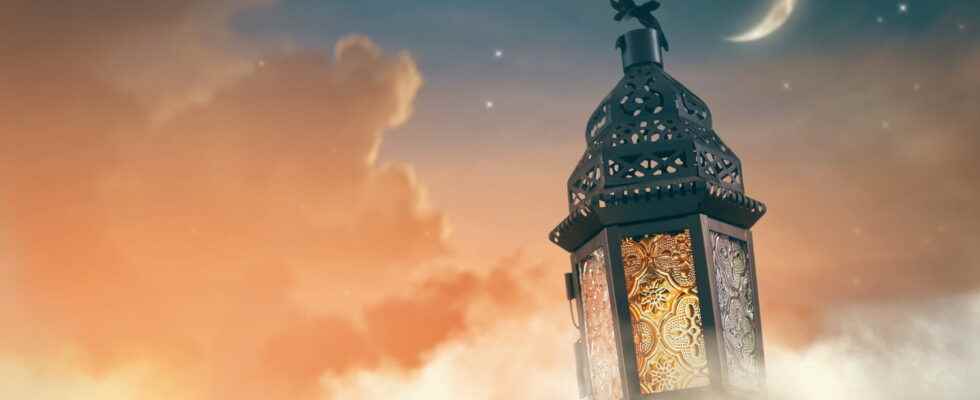The lunar observation of the “Night of Doubt”, organized at the Great Mosque of Paris, should allow a religious commission to confirm this Saturday evening the end date of Ramadan 2022.
[Mis à jour le 30 avril 2022 à 09h00] The “Night of Doubt” is a tradition allowing, through the observation of the Moon, to traditionally announce the end date of the Muslim fasting month of Ramadan. It is always organized on the 29th day of the month of Ramadan, this month of fasting and deprivation considered “sacred” by practicing Muslims around the world. This year, it corresponds to this Saturday, April 30, at 6:30 p.m., at the Grande Paris Mosque. It is at the end of this lunar observation that a religious commission traditionally communicates the date of the end of Ramadan 2022 (1443), Eid el-Fitr, around 7 p.m. This allows believers in Islam to know the end date of Ramadan: the last day of the month of Ramadan corresponds to the eve of Eid al-Fitr. The theological commission in question includes members of the Grand Mosque, but also of the four Muslim federations which split with the CFCM (main representative body of Islam in France) in 2021.
Concretely, the traditional observation of the sky of the “Night of Doubt” proposes to verify, in addition to astronomical calculations, whether or not we are entering a new lunar month… and therefore whether or not we are leaving the Muslim fasting month in progress. The mechanism is the same as at the beginning of the month of Ramadan: if one perceives the crescent Moon with the naked eye, the new month of moon calendar starts the next day. Otherwise, it starts two days later.
An end date for Ramadan already delivered by the CFCM in March
Based on astronomical calculations, the French Council of Muslim Worship (CFCM), the main representative body of Islam in France, had given as of March 13 the theoretical end date of Ramadan. This estimated date corresponds to Sunday May 1, 2022, the eve of Eid-el Fitr (feast of breaking the fast). It is this date that will probably be confirmed during the Night of Doubt this Saturday, April 30.
During Ramadan, one of the pillars of Islam, believers are asked to abstain from drinking, eating, smoking and having sex, from dawn until sunset. Muslims are invited to pay an alms of seven euros per person for the poor, the “zakât el-Fitr”.
Like its start date, the end date of Ramadan is, as a reminder, defined on the basis of the lunar cycle governing the Muslim calendar (aka Hijri calendar). However, a lunar month lasts 29 or 30 days there. A one-day shift is possible at the end of the different months of the lunar calendar on which Islam is based: if the crescent moon is observed on the 29th day of the month, the month lasts 29 days; otherwise, it is extended by one day.
Eid al-Fitr is the feast of breaking the fast marking the end of the month of Ramadan. It takes place the day after the last day of the ninth Hijri month. To determine its date well in advance, astronomical calculations can be made. On the eve or two days before the date, the day of Eid al-Fitr is officially announced by a theological commission following the lunar observation of the “Night of Doubt”.
The “Night of Doubt” organized at the Great Mosque of Paris, is on the 29th day of the current lunar month in the Hijri calendar, and makes it possible to determine the beginning and the end of a month. The events of the Night of Doubt at the start and the Night of Doubt at the end of Ramadan for believers in Islam are generally broadcast via the official website of the Grand Mosque of Paris. It is likely that during the “Night of Doubt” at the end of Ramadan on Saturday April 30, the religious commission estimates that the end date of Ramadan 2022/1443 corresponds to Sunday May 1 (see the specialized calendar site Vercalendario), date already identified by the CFCM on the basis of astronomical calculations.
The “Night of Doubt” tradition refers to the “hadith”, an oral statement of the Prophet in which he notes: “Fast only when you see the lunar crescent and break the fast when you also see it”. In the Muslim calendar, the “night of doubt” marks the end of a lunar month, and the beginning of the following lunar month. It therefore plays a role both in formalizing the start date of the Ramadan fast, but also in confirming the end date of this “holy month”.
